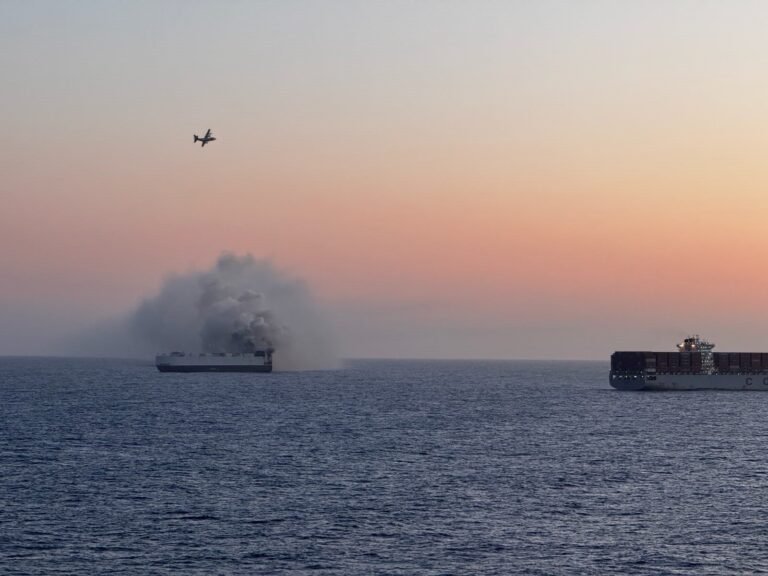The Ongoing Challenge of Fires on Vehicle Carriers
The recent fire aboard the car carrier Morning Midas in the North Pacific Ocean has once again brought to light the significant challenges faced by the maritime industry when it comes to fires on vehicle carriers. This incident adds to a series of similar events that have occurred in recent years, highlighting the need for improved safety measures in the transportation of vehicles by sea.
The Morning Midas Incident
The UK-owned, Liberia-flagged vessel, Morning Midas, caught fire on June 3, 2025, while carrying 3,159 vehicles, including a significant number of electric and hybrid electric vehicles. Despite the crew’s efforts to contain the fire using onboard suppression systems, they were forced to evacuate the vessel as the fire spread rapidly. All 22 crew members were safely rescued and transferred to a nearby vessel.
Previous Incidents
Looking back at previous incidents involving fires on vehicle carriers provides valuable insights into the challenges faced by the industry. Some notable examples include:
Fremantle Highway
The Japanese-owned car carrier, Fremantle Highway, experienced a fire in July 2023 near the Netherlands. Despite the crew’s evacuation and salvage efforts, the vessel suffered significant damage, highlighting the risks associated with such incidents.
Grande Costa D’Avorio
The Italian-flagged Grande Costa D’Avorio faced a fire while loading vehicles at Port Newark, New Jersey, in 2023. Tragically, two firefighters lost their lives in the response to the incident, underscoring the importance of proper safety protocols.
Felicity Ace
The Panama-flagged Felicity Ace caught fire in the Atlantic Ocean in 2022, leading to the loss of the vessel and its cargo of luxury vehicles. The cause of the fire remains under investigation, highlighting the need for thorough safety assessments.
Höegh Xiamen
Grimaldi’s Höegh Xiamen experienced a fire in Jacksonville, Florida, in 2020, resulting in the total loss of the vessel and its cargo. The incident revealed critical flaws in firefighting preparedness and oversight, emphasizing the importance of proper safety measures.
Conclusion
As the maritime industry continues to grapple with the challenges of fires on vehicle carriers, each incident serves as a reminder of the need for enhanced safety protocols and regulations. With the increasing popularity of electric vehicles, it is crucial for stakeholders to address the unique risks associated with transporting these vehicles by sea. By learning from past incidents and implementing improved safety measures, the industry can work towards preventing future tragedies.
Sign up for our newsletter

